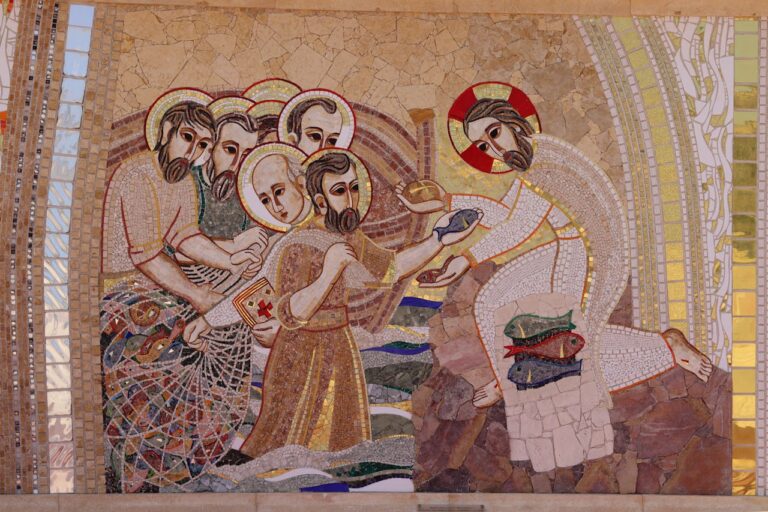When we talk about leadership we talk about vision.
But is vision what truly makes leaders successful?
The answer might surprise us.
I recently did a deep dive into three of the men who made New York City: John D. Rockefeller (1839–1937), Robert Moses (1888–1981), and Lorne Michaels (1944– ). Rockefeller amassed his fortune in oil, rail, and real estate. Moses was an influential city planner and land steward. Michaels has spent the past 51 years running Saturday Night Live, the most influential comedy show in American history. Yes, I know: these stories are more male and white than a model train convention. But we can learn a lot from these profiles of leadership.
Moses gained influence by amending laws, drafting contracts, and passing bills that favored his interests. Colleagues didn’t bother to read the fine print, which gave him power. Rockefeller used leverage. He was calm and long-suffering. He mastered kickbacks, sweeteners, and grease. He was devoutly Christian, yet his business practices left people wondering about his ethics. Michaels uses mystique. He calmly pontificates with Yoda-like wisdom and casually drops names of celebrity friends. People want to know him and be known by him. Michaels is chatty. Rockefeller is private. Moses was almost reclusive. Rockefeller created reliance. Moses created convenience. Michaels creates enjoyment.
It is hard to say that any of them were gifted with vision for the future. Instead, they mastered timing, habits, and resilience.
“They mastered timing, habits, and resilience.”
Wayne Gretzky is credited with the saying, “I skate to where the puck is going to be, not where it has been.” This makes it sound like leaders can anticipate what’s next. But they usually can’t and don’t. When Rockefeller was refining oil for lamps, he expressed legitimate anxiety over what Thomas Edison’s lightbulb could do to his kerosene business, like a network executive worrying about TikTok. He didn’t even imagine that cars and planes would soon create an unimaginable demand for his oil. Speaking of cars, Moses carved up New York’s neighborhoods with interstates that promised to relieve traffic congestion. But it backfired. These parkways and freeways actually multiplied it. The farther out people lived, the more time they spent on roads, which created more congestion. And Michaels has impeccable taste for humor. But he famously lives from week to week. Great cast members stay a few years. The majority of sketches are forgettable. He has a weekly routine, not a 50-year plan.
So what is the substitute for vision? Focus, Timing, and Resilience.
Focus
Each of these leaders shares laser focus for their work. They knew their specific role and did not get distracted by fringe interests. They carried themselves like the adult in the room. For Michaels, 11:30 on Saturday is a firm deadline. Be ready. Rockefeller abstained from nearly every vice, even including playing cards. The leaders had different rhythms, but each had routines they trusted. Rockefeller kept his house on Cleveland’s leafy East Side because he was convinced that Lake Erie’s fresh water was therapeutic and healthy. Michaels regulates his sleep so that he is always fresh at midnight, which he also requires of cast members. Moses swam outdoors nearly every day in New York’s warmer (and even cooler) months. Their practices were more critical for their flourishing than their predictions.
“Their practices were more critical for their flourishing than their predictions.”
Timing
In some cases leaders are the beneficiaries of good timing rather than impeccable vision.
In Outliers, Malcolm Gladwell notes the tech leaders like Steve Jobs, Bill Gates, Paul Allen, and Steve Wozniak, who were all born between 1950-1955. They entered adulthood (and college) just as mainframe computer labs became accessible. If they had grown up 25 years earlier when their country was at war, they might have been forced to swap Berkeley for the Battle of the Bulge. The leader becomes what is needed in the moment. Jesus would say “you do not know how to interpret the times” (Luke 12:56). Leadership is more about addressing what is known in our season than anticipating what we will need to be in decades to come.
Moses’s career intersected perfectly with a time when Americans were enamored with automobiles and weary of congested neighborhoods. Today his methods would seem philistine. Rockefeller came into a world where the world’s oil was found largely in Titusville, Pennsylvania and Lima, Ohio—both proximate to his northeast Ohio home. In a few decades oil would be discovered in Texas and Saudi Arabia, and the world would change forever. And it’s hard to imagine any TV executive telling people to tune in at 11:30 for a live show today. But in 1975 it met a need, and today the show’s relevance is sustained by YouTube clips.
“Leadership is more about addressing what is known in our season than anticipating what we will need to be in decades to come.”
Resilience
We should not assume that being born in advantageous seasons makes leadership easy. Leaders are often remembered for how they endure conflict. Leaders must stand tall even when faced with opposition. These three leaders faced constant opposition. Moses was opposed by the equally charismatic Jane Jacobs of Greenwich Village. Michaels has contended with the FCC and every sponsor who ever got offended by a Weekend Update grenade–not to mention each of us who has glibly said, “I remember when the show was much funnier.” Rockefeller had Carnegie, J. P. Morgan, Theodore Roosevelt —but mostly journalist Ida Tarbell, whose book The History of Standard Oil emboldened public hatred toward the man who controlled 1.5% of America’s GDP (this is roughly the same percentage that is currently held by Elon Musk).
Martin Linsky says “Good leadership is disappointing people at a rate they can absorb.” The leader must have the courage to face public scrutiny. Each of these characters has a confidence and calm that helped them outlast their adversaries. They believed in their mission, so they could endure hardships. Moses had a historically poor run for President. He moved on. And Michaels didn’t let flops like Night at the Roxbury or MacGruber stop him from producing entertainment. As always, the show must go on.
“Leaders are often remembered for how they endure conflict.”
The past is not shaped by people who saw the future; it is shaped by the people who most thoroughly understood their moment. The same is true for us today. Leaders should not fall into despair because they can’t predict the future. God needs our consistency more than our creativity.
We can hold to our virtue even when we’re unclear of the vision.
*My sources were Caro, The Power Broker, Chernow, John D. Rockefeller, and Susan Morrison, Lorne.
From Bob Turner’s “Stationery” site. Used with permission.











